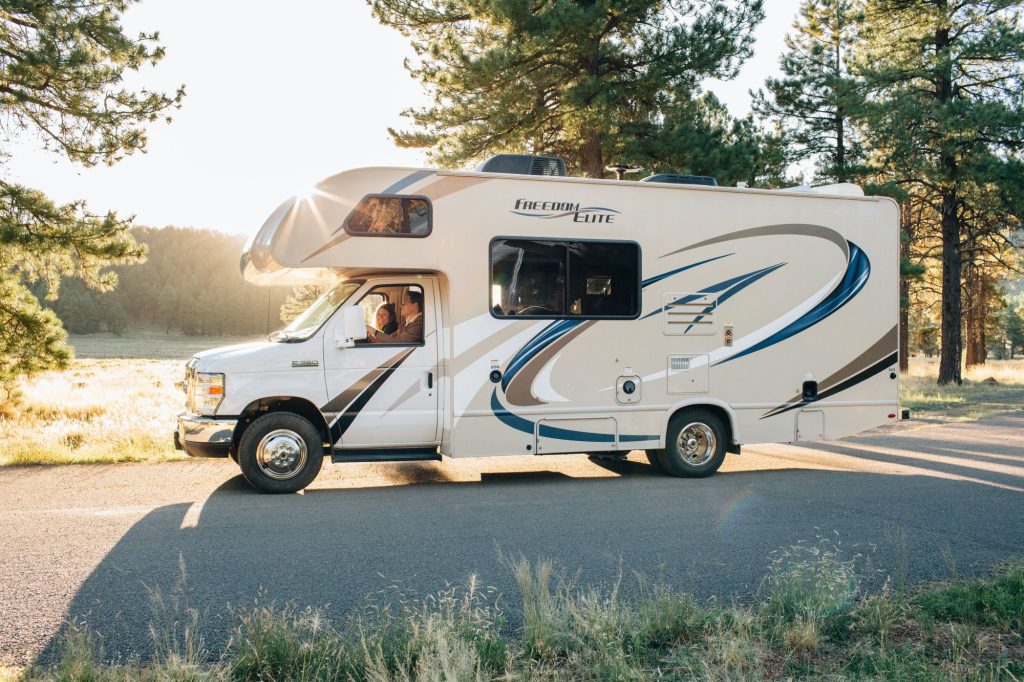Are you considering buying your first RV? It’s an exciting time, but there are several essential factors to consider before making your purchase. Whether you’re planning to hit the open road for weekend getaways or embark on an extended cross-country adventure, here are some key factors to keep in mind:

1. Budget
Before diving into the world of RVs, it’s crucial to establish your budget. RVs come in various sizes, types, and price ranges. On the cheaper side, you could be looking at $10-$15k for a used travel trailer and over $50k for a spacious and luxurious travel trailer. A used fifth wheel is a bit more ranging from about $20k-$60k. Drivables (Class A, B, or Cs) are usually the most expensive averaging anywhere from $50k to $150k. These are general ranges, but quality and condition plays a huge factor in the price. Determine how much you’re willing to spend and stick to it. Remember to consider not only the initial purchase cost but also ongoing expenses such as insurance, maintenance, and campground fees.
2. Size and Layout
RVs come in different sizes and layouts, each offering distinct advantages. Think about how many people will be traveling with you and how much living space you need. Consider factors such as the number of bedrooms, bathrooms, kitchen amenities, and storage space. It’s important to find an RV that suits your lifestyle and provides the necessary comfort and functionality. Pro tip: RV manufacturers usually say an RV can sleep much more than is comfortable. For example, if the manufacturer says it can sleep 8, it can probably sleep 4 comfortably with 6 or more being tight.
3. Intended Use
Consider how you plan to use your RV. Will you be using it for occasional weekend getaways, or do you intend to live in it full-time? This will influence the type of RV you choose. Class A motorhomes offer luxurious living but may be more challenging to maneuver. Travel trailers are versatile and can be detached from your towing vehicle, allowing you to explore without bringing the entire RV. Determine your priorities and select an RV that aligns with your intended use.
4. Research and Inspections
Do thorough research on the RVs you’re interested in and read reviews from other owners. Look for potential issues or recalls associated with specific models or manufacturers. If possible, attend RV shows or visit dealerships to see the vehicles in person. When you’ve found a potential RV, schedule a professional inspection or do a thorough pre-purchase inspection yourself to ensure it’s in good condition and free from any hidden problems.
5. Maintenance and Repairs
Owning an RV involves regular maintenance and occasional repairs. Consider factors such as the availability of service centers and the cost of parts for the RV you’re considering. Some RV manufacturers have a wider network of service centers, making it easier and more convenient to get assistance when needed. Additionally, research the warranties offered and understand what they cover.
6. Resale Value
While you may be focused on buying your first RV, it’s also essential to think about its potential resale value. RVs depreciate over time, but some models hold their value better than others. Opting for a reputable brand and a popular model can increase the chances of a higher resale value if you decide to upgrade or sell your RV in the future.
Remember, buying your first RV is a significant investment and a gateway to memorable adventures. Take your time, do your research, and consider these essential factors to ensure you find the perfect RV that meets your needs and brings you many years of enjoyment on the road.
If you are looking to buy a new RV, check out the used RVs listed for sale at RecNation. Each RV is checked for quality, professionally cleaned, and managed by our team of experts who are available to answer any questions you may have.
If you are in need of professionally managed, secure, and safe RV parking, check out RecNation RV & Boat Storage.
